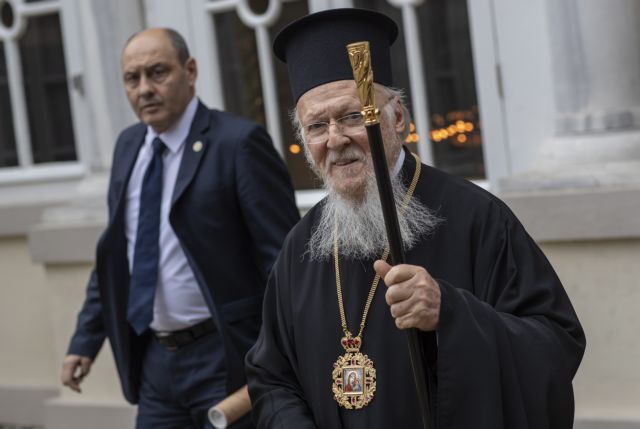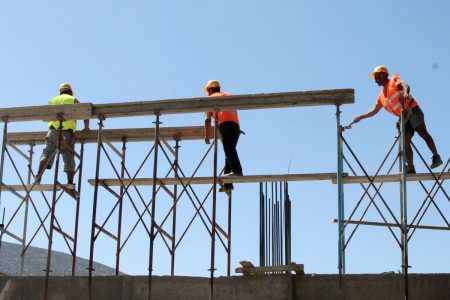Amidst Moscow Patriarchate threats of a schism in Eastern Orthodoxy, Ecumenical Patriarch Vartholomeos has called on the leaders of all the self-governing (autocephalous) Orthodox Churches to recognise the autocephaly that it has granted to the Orthodox Church in Ukraine.
The Ecumenical Patriarchate granted autocephaly to the Ukrainian Church in September after a decades’ long row between Kiev and Moscow, under whose jurisdiction the Ukrainian Church was in the Soviet era.
The Ecumenical Patriarchate in Constantinople is under canon law the sole authority that can grant independence to local churches, as it did with Greece in 1850, two decades after King Otto declared the Orthodox Church of Greece independent.
Also, it was the Ecumenical Patriarchate that recognised the Russian Church as a patriarchate in the 16th century (1589), and later ceded to it authority to ordain the bishops of Kiev, which it recently revoked.
That canonical role of the Ecumenical Patriarchate as the coordinating centre in relations between the sister Orthodox Churches is now being challenged openly by Moscow, which due to the size of its flock and the backing of the Russian Empire had for centuries sought to supplant Constantinople as the first-ranking Church in Orthodoxy.
That is why the Russians have historically called Moscow the “third Rome”, after the collapse of the Eastern Roman Empire (Byzantium) established by the Emperor Constantine.
“The completion of all actions [procedures before autocephaly is formalised] is expected on 6 January, the day of Epiphany [the baptism of Christ], on which we wish to deliver the Tome of Autocephaly and to concelebrate [the liturgy] with the primate of the Orthodox Autocephalous Church [of Ukraine],” Vartholomeos wrote in his letter to the leaders of other 13 autocephalous Churches. Kiev is the 15th.
Ukrainian delegation in Constantinople
Even as the clergy and laity of the Ukrainian Orthodox Church were arriving in Istanbul for Sunday’s historic liturgy, the leaders of the other 13 Churches were reviewing the letter in order to proceed immediately (or not) with the recognition of Kiev’s independence, but not all of them (aside from Moscow) were equally receptive, and Moscow and Constantinople are each enmeshed in a battle to persuade the other Churches.
Vartholomeos’ letter stated, “Expressing brotherly trust in your Beatitude (the title of primates of independent Orthodox Churches) knowing very well the will and the expressed desire of Ukraine…and the responsibility of the Church of Constantinople for resolving all ecclesiastical issues, we trust that you will agree with these actions and will recognise the Orthodox Ukrainian Church as Autocephalous, memorialising [praying for during church services] the name of the Metropolitan of Kiev and All Ukraine in the Sacred Diptychs [the book containing the names of the leaders of the autocephalous Churches] immediately after the name of his Beatitude the Archbishop of the Czech Lands and Slovakia.”
The strict hierarchy in the Eastern Orthodox Church stipulates that at all church services each primate of a local, autocephalous Church memorialises the names of the leaders of all the other independent Churches in the chronological order in which their Churches were granted autocephaly.
Recapitulating the events of the last months and the actions taken, Vartholomeos calls upon the other primates to proceed with recognition.
“We shall have no excuse on the Day of Judgment if we choose to ignore our brethren who are experiencing days of anxiety in Ukraine, before the awesome, unique and just seat of the Judge of the souls and hearts of humankind and of our Just Lord and Saviour Jesus Christ.”



